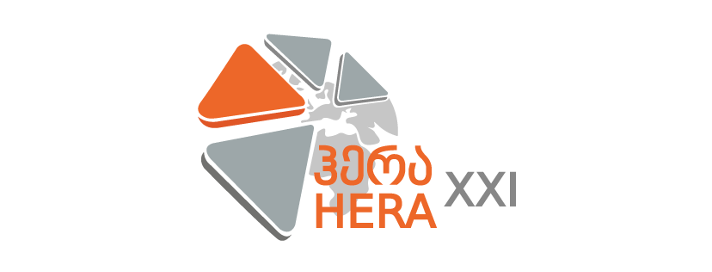

| 31 March 2016
Association HERA XXI - Georgia
Based in Tbilisi, Georgia, Association HERA XXI is a women’s rights organization working from the feminist perspective. It has been actively working in the fields of healthcare, sexual and reproductive health and rights (SRHR) and gender equality since 1998. HERA XXI offers comprehensive education to vulnerable societal groups, makes quality SRHR services more accessible, promotes development of institutions of volunteerism and activism and enhances strengthening and engagement of youth and community groups. Evidence-based advocacy, partnerships, awareness-raising, and results-oriented monitoring are essential approaches for achieving HERA XXI’s programmatic goals. Target groups: Girls and women of childbearing age; Girls and women living under the poverty line; IDP girls and women; Rural population; Girls and boys aged 14 to 25; High risk groups; Ethnic minorities; The following telephone and online/remote services can be received through the HERA XXI’s Call Center (Hot-line: 20 11 221): Consultation with a doctor/reproductive specialist; Legal consultation on sexual and reproductive rights and domestic violence; Consultation of a Social Worker for Internally Displaced People (IDPs); Online consultation service of a reproductive specialist and a legal consultant for young people - the service is available on the platform – www.youth-counseling.ge. Advocacy The Association contributes to the improvement of the political, social and economic environment of the country by promoting universal access to sexual and reproductive health services, maternal health, comprehensive education on reproductive health and healthy lifestyles, improving legal environment of children’s rights in terms of SRHR, advocating youth policies at local, national and international levels, and increasing readiness and awareness of decision-makers regarding sexual and reproductive health and rights.

| 31 March 2016
Family Planning Association of Nepal
Established in 1959. the Family Planning Association of Nepal (FPAN) is Nepal's first national family planning service delivery and advocacy organization. It is a major collaborator of the Government of Nepal's national sexual and reproductive health (SRH) program, contributing a greater percentage of all SRH services in Nepal annually. FPAN serves Nepalese people in 44 districts, focusing on the poor, marginalized, socially excluded and underserved (PMSEU) populations, which include female sex workers, people living with HIV (PLHIV), LGBTIQ people, injecting drug users, men who have sex with men (MSM), migrant workers, people with disabilities (PWD), survivors of gender-based violence (GBV), urban slum dweller and people affected by disaster and crisis. The mission of FPAN is to "champion a volunteer movement for increased provision of SRHR to all, particularly to those most at risk, marginalized, and under-served". The planned outcomes set by FPAN for the strategic planning period (2016-2022) include: Nepal Government respects, protects and fulfil sexual and reproductive rights and gender equality; Nepalese people empowered to act freely on their sexual and reproductive health and rights; a high quality integrated sexual and reproductive health services delivered; and a high performing, accountable and strong FPAN. The success of FPAN is due to its extensive and diverse network of service delivery points, as well as its expertly trained staff and volunteers who provide services in areas where they would otherwise be unavailable. FPAN provides an Integrated Package of Essential Services (IPES), which includes sexuality counselling, contraception, including emergency contraception, safe abortion, STIS/RTIs, HIV & AIDS, obstetrics, gynecological and sexual & gender-based violence services. These services are provided across 974 service delivery points (including 270 clinical SDPs, 22 family health clinics, 56 community health clinics, 75 associate clinics, 117 mobile teams, and 794 non-clinical service delivery points). FPAN provides approximately four million SRH services each year across its service delivery points, with family planning accounting for 40%, STIs/RTIs for 14%, gynaecological services for 12%, HIV services for 10%, and other services accounting for the remaining 24%. FPAN has eight clinical training centres that are connected to its family health clinics, which provide full range of family planning and reproductive health services. The training centres are accredited by the National Health Training Centre, (MoHP). These centres provide a variety of family planning and sexual and reproductive health training to health care providers from FPAN, government, and non-governmental organizations (NGO) health facilities.







